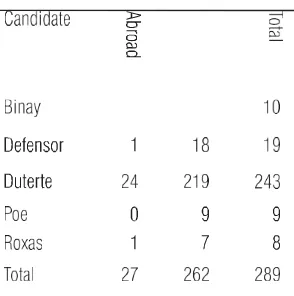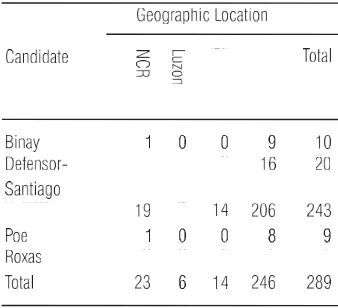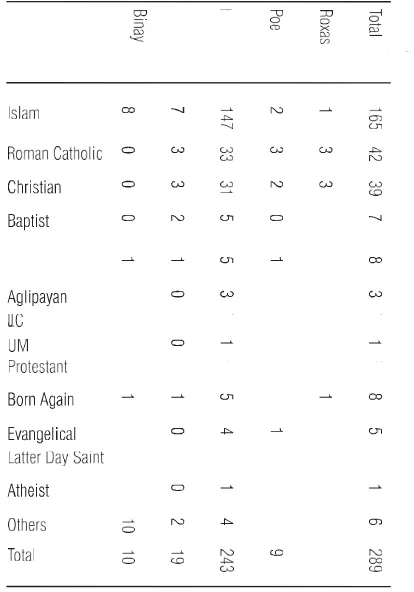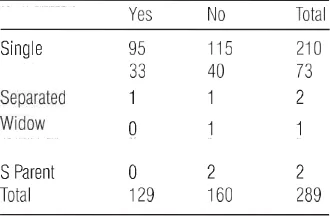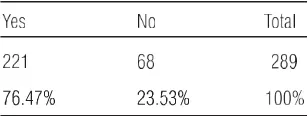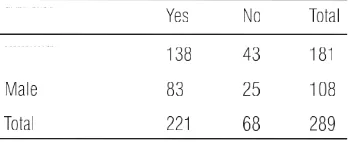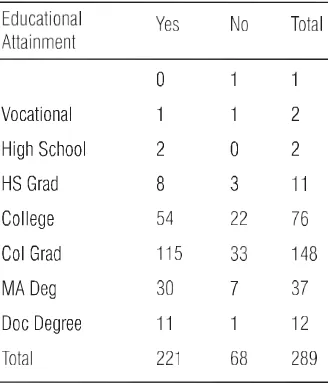The Social Media as
a Transformative Agent in the
Electoral Process
DAVID N. ALMAREZ, DM dnalmarez@yahoo.com.ph AJREE D. MALAWANI ajreedmalawani@gmail.com
Mindanao State University-Iligan Institute of Technology
ABSTRACT
The growing use of social media in social interaction has changed the mode of political campaign in the Philippines. It allowed a more aggressive citizen’s par-ticipation in politics in a more efficient and asynchronous mode. This research sought to determine the influences of social media in the presidential prefer-ences of netizens during the campaign period for the 2016 presidential elections in the Philippines. It also looked into the pattern of the preferences of respon-dents among the five presidential candidates for the 2016 presidential election.This research used Media Ecology Theory by Marshall McLuhan and Uses and Gratifi-cation Theory by Herbert Blumer as discursive approaches to understand the behaviour of social media users during the 2016 presidential campaign. Descrip-tive and qualitaDescrip-tive analyses were used. Data gathering was through online ques-tionnaire by using snowball sampling. A total of 289 respondents participated out of 1210 visitors of the link used by the researchers. The data gathering started on February 9, 2016, the start of the presidential campaign period and ended on March 27, 2016 or a total of 47 days. The timeline for data gathering was constrained by the time limit that was set for this study. The results show that social media has no strong influence in the preferences of respondents with only 44% of the respondents saying that their presidential preferences were influenced by social media. However, 75.6% of the respondents indicated that social media is a determining factor in the process of presidential campaign because it is an efficient media in communicating vital campaign information. The pattern of the preferences of respondents shows strong resemblance to some mock polls conducted by other groups in the Philippines during the cam-paign period. It is recommended to continue exploring the relevance of social media as a political tool for effective communication in politics and governance. Key words: social media, political campaign, communication, preference, politi-calparticipation, transformation
ABSTRAK
Peningkatan penggunaan media sosial dalam politik di Philipina telah
Vol. 7 No. 3 August 2016
342
babkan partisipasi warga negara yang tinggi sebagaimana pada pemilihan presiden pada tahun 2016. Dengan meneliti 289 responden ditemukan bahwa 76% responden menyatakan bahwa media sosial mempengaruhi perilaku memilih mereka pada pemilihan presiden. Diperlukan penelitian longitudinal untuk melihat kecenderungan media sosial dan perilaku memilih selama periode tertentu.
Kata kunci: social media, political campaign, communication, preference, political par-ticipation, transformation
INTRODUCTION
People nowadays are aware of the usage of social media spe-cifically the Facebook because it can be easily accessed. Unlike any other form of social media, Facebook is used by about 60.4% of the Filipino people (Dimacali, 2015). Facebook is a system where people can stay connected with the people they want to (Zuckerberg, 2010). For Zuckerberg, the fast growth of Facebook is because of the fact that what is most interesting to people is other people. For some Filipinos, Facebook is a major channel of communication that is versatile enough for their needs.
Facebook is a social media platform that helps people to share information that most of them in the past did not have the power to do (Zuckerberg, 2010). The people usually put so much data on Facebook because of its advance privacy controls that ever existed on the Internet (Kirkpatrick, 2010). Facebook’s various privacy controls are available through different categories. The user can adjust the privacy settings and limit profile access.The built-in audience selector allows users to specifically choose who can view their posts. Kirkpatrick (2010) also added that this sys-tem created by Zuckerberg is effectively designed for efficient flow of information.
Smith (2011) argued that social media have bloomed over the past few years. According to Zuckerberg (2010), Facebook is an engine and its users share a lot of information on a day-to-day basis. He indicated further that social media is something very useful; users are sharing more things than they were at the begin-ning. This means that social media users can have the option to look, research and understand what is going on with other us-ers.
Social media is a new channel of communication among poli-ticians for them to reach and communicate with the voting pub-lic. However, it is inevitable that problems with social media have emerged for politicians as well. According to Rothman (2011), the issue of social media providing damaging material for oppo-nents is one factor that shall not be overlooked. However, Rahmawati (2014) indicated that the social media use forpoliti-cal activities could be an implication of the possibility to utilize social media as a bridge between voting public and politicians. This was demonstrated during the 2016 presidential election in the Philippines where the supporters of Mayor Rodrigo Duterte engaged Facebook as their main campaign tool in lieu of the traditional and more expensive print, radio and television. As a campaign tool, it flourished as a consequence of the alleged in-sufficiency of campaign fund which beset the camp of Mayor Duterte who made as a campaign policy the refusal to accept campaign donations from big businesses. This is to avoid incur-ring debt of gratitude which may be exploited later by the donor in seeking reciprocal favor if a candidate wins.
STATEMENT OF THE PROBLEM
This research aims to make qualitative and quantitative analy-ses on the uanaly-ses of social media in the 2016 Presidential Cam-paign through the followinginquiries:
1. What is the socio-economic profile of the respondents? 2. What is the action taken by the respondents on the images
JOURNAL OF GOVERNMENT & POLITICS
Vol. 7 No. 3 August 2016
344
posted on Facebook?
3. Did the campaign materials posted in Facebook influence the Presidential preference of the respondents?
4. Is there a significant association betweenthe socio – economic profile of the respondents and their Presidential preference?
CONCEPTAL FRAMEWORK
The Analytical Model of this research is adapted from the
book of Ott, Brian and Robert Mack,Critical Media Studiescited
by I, Cristal at her blog,Ecology Analysis and Mediaand from the
Student’s Uses and Gratification Expectancy Conceptual Framework in relation to E-Learning Resourcesof Mondi et al.(2007).
The conceptual framework shows the relationship of the vari-ables in this study. The Social Movement represents the Facebook pages/accounts that posts images and/or campaign materials of the Presidential candidates. The box Facebook represents the medium of communication used by the participants to post cam-paign material. The moderating variables of this research are the respondent’s socio - economic profile which is categorized by age, gender, civil status, highest educational attainment, employ-ment status, religious affiliation,and fraternity affiliation.
The independent variables of this research will be the 5 ele-ments from the uses and gratification theory and 2 eleele-ments from media ecology theory. The elements are the cognitive, af-fective, personal integrative, social integrative, tension release, perception and feeling. The Presidential preference of the respon-dents is the dependent variable. As a poll survey, the focus was on the independent variables: cognitive, affective, perception and feelings. These are easier to relate with their preferences.
METHODOLOGY
This descriptive research looked into the use of social media in the 2016 presidential campaign in the Philippines. The data gathering was made through Facebook being the most popular free social networking website in the Philippines that allows us-ers to send private messages and upload images and videos (Tech Target, 2015). Respondents were Facebook friends who were re-quested to answer an online questionnaire and were asked to request their Facebook friends to participate as well. A question-naire was constructed for this purpose using an online polling survey service called Facebook Poll. The link of the poll was posted on the Facebook Timeline of the researchers and was sent to the respondents through Facebook Messenger. After the 47 days of data gathering, the Facebook poll has recorded 1210 visitors and 289 of them participated on the poll. The data gathering started February 9, 2016 and ended March 27, 2016. The poll consists
JOURNAL OF GOVERNMENT & POLITICS
Vol. 7 No. 3 August 2016
346
of 56 questions and an average duration of 13 minutes and 03 seconds was spent per respondent in answering. Feedbacks from some participants and from friends who did not participate in the poll suggested that the length of the instrument was a con-straint. Aside from those who refrained from answering, some opted not to complete the poll. Incomplete answers were not included.
SIGNIFICANCE OF THE STUDY
The social media is an emerging tool in political campaign. Its effectiveness may lead to the development of a computer-based strategy for political campaign.
This study could provide an input for political leaders in de-termining the effects of images and statements posted on Facebook to the preferences of the voters. It could motivate fu-ture researchers to conduct further researches on the uses of so-cial media in political campaign.
The extensive use of social media during the 2016 presiden-tial elections will certainly redefine the new contours of political campaigns, at least in the Philippines. Facebook, as a campaign tool is affordable and it conveys not only written information but also visual forms ofinformation.
FINDINGS
Mayor Duterte topped the first quarter of 2016 presidential pref-erence poll with a score of 27%, while Senator Poe was only sec-ond at 23% (Macas & Legaspi, 2016). The big lead by Duterte shown in Table 1 which is disproportionate to his score in the SWS survey indicates the growing domination of his supporters in the use of the social media in their political campaign which started to gain momentum as early as December 2015
TABLE 1:ANSWERSTOTHE QUESTION:“WHOAMONGTHE 2016PRESIDENTIALCANDIDATES WILLYOUVOTE FORIFTHE ELECTION WERE HELD TODAY?”
JOURNAL OF GOVERNMENT & POLITICS
347
Note: Names of candidates were arranged alphabetically
Grouping by gender, Davao Mayor Rodrigo Duterte was pre-ferred by 60.49% and 36.21% of the female and male partici-pants respectively and 72.72% of the gay participartici-pants.
By civil status, 72.66% of the participants are single and 25.26% are married. It follows that majority of the supporters of the candidates were single except for Jejomar Binay whose sup-porters were 50% married and 40% single.
Vol. 7 No. 3 August 2016
TABLE 2: ANSWERS BASEDON GENDER, TO THE QUESTION:WHO AMONG THE 2016 PRESIDENTIAL CANDIDATES WILL YOU VOTE IF THE ELECTIONS WERE HELD TODAY?
348
Table 2 shows that despite the feared image of Duterte, he is preferred more by participants. Duterte got 243. Among these were a gay and 2 participants for each from lesbian, bisexual (woman and man), and 1 transgender participant. Roxas got 1 gay participant and Defensor-Santiago had 1 participant from both gay and bisexual (man). Despite the vigorous campaign
against Duterte by theGabriela, a party list of women with
repre-sentative in Congress, a great majority of women participants preferred Duterte over the other candidates. Table 3 shows the data on the presidential preferences of participants according to their civil status.
Table 3 shows that Davao Mayor Duterte is preferred by ma-jority of the single and married participants.
TABLE 4. ANSWERS BASEDON HIGHEST EDUCATIONAL ATTAINMENT, TO THE QUESTION:“WHOAMONG THE 2016 PRESIDENTIAL CANDIDATES WILL YOU VOTE IF THE ELECTIONS WERE HELDTODAY?”
TABLE 5. ANSWERS BASED ON EMPLOYMENT STATUS, TO THE QUESTION: “WHO AMONG THE 2016 PRESIDENTIAL CANDIDATES WILL YOU VOTE IF THE ELECTIONS WERE HELD TODAY?”
JOURNAL OF GOVERNMENT & POLITICS
Vol. 7 No. 3 August 2016
350
Despite some questions on the human rights record of Mayor Duterte, Table 4 shows that he was still preferred by majority of participants in all levels of academic attainments. Moreover, majority of the participants who have college education preferred Duterte. The dominance of participants with college education indicates the popularity of the use of social media among better educated Filipinos.
Table 5 shows that Duterte also leads in his support in terms of the employment status of participants. He got large majority among government and private employees; he also got large jority among students and self-employed. Moreover, he got ma-jority of the unemployed and mama-jority of Filipinos working abroad. The data indicate that Duterte is very popular among Filipino workers and students.
TABLE 6. ANSWERS BASEDON CURRENT GEOGRAPHICLOCATION,TO THE QUESTION: “WHOAMONG THE 2016 PRESIDENTIAL CANDIDATES WILL YOU VOTE IF THE ELECTIONS WERE HELDTODAY?”
Overseas Absentee Voting (OAV); Roxas, the administration can-didate got only 17,360 votes; Defensor-Santiago got 17,278; Poe got 9,333; and Binay got 3,159 votes. The large majority support by Filipinos working abroad to Duterte is viewed as a protest against the way they were treated by the government like in “laglag bala” (dropping bullets into the luggage of departing passengers) and pilferage of the goods they sent to their relatives in the Phil-ippines. Despite their economic contribution through their dol-lar remittances which earned them the moniker, “bagong bayani” (new heroes) they feel that they were neglected by the govern-ment.
TABLE 7.ANSWERSBASEDONGEOGRAPHICORIGIN,TOTHE QUESTION:“WHOAMONGTHE 2016 PRESIDENTIAL CANDIDATES WILL YOU VOTE IF THE ELECTIONS WERE HELD TODAY?”
The above table shows the presidential preferences of partici-pants based on the three main divisions of islands in the Philip-pines with National Capital Region (NCR) which is located in Luzon, taken separately. Although Mayor Duterte is from Mindanao, he is also preferred by majority of participants from Luzon, Visayas and NCR.
The popularity of Davao Mayor Duterte did not escape the notice of Charlie Campbell (TIME, April 26, 2016) who
com-JOURNAL OF GOVERNMENT & POLITICS
Vol. 7 No. 3 August 2016
352
mented that the mayor got into the verge of the Philippines Presi-dency through his loudmouth. The mayor ran a tumultuous cam-paign punctuated by comments that were promptly caught by the media and given negative commentaries. But his “trash” lan-guage as the media called it, seems to have endeared him more among his supporters as indicated in his ratings in subsequent surveys.
TABLE 8:ANSWERSBASEDONRELIGIOUS AFFILIATION,TOTHE QUESTION:“WHOAMONGTHE 2016PRESIDENTIAL CANDIDATES WILL YOU VOTE IF THE ELECTIONS WERE HELD TODAY?”
when it comes to identifying their religious affiliation. The “oth-ers” did not identify their religious affiliation. The preponder-ance of “Islam” reflects the location of the researchers who are from Iligan, thus many of their FB friends are Muslims.
TABLE 9. ANSWERS BASEDON FRATERNITY AFFILIATION,TO THE QUESTION: “WHO AMONG THE 2016 PRESIDENTIAL CANDIDATES WILL YOU VOTE IF THE ELECTIONS WERE HELDTODAY?”
TABLE 10. ANSWERS TO THE QUESTION: “DID THE IMAGES POSTED ON FACEBOOK INFLUENCE YOUR PRESIDENTIAL PREFERENCE?”
There are fewer fraternity members compared to those who are not members of any fraternity. Of the 21 members of Tau Gamma Phi who participated at this research, 19 preferred Duterte, 1 for Roxas, and 1 for Defensor. Four out of 6 partici-pants from Alpha Phi Omega preferred Duterte while the other 2 were for Binay. Defensor-Santiago got one participant from Beta Sigma Lambda. However, Duterte got 2 from Beta Sigma, 5 from Beta Sigma Lambda, 6 from Mu Kappa Phi and 1 partici-pant each from Megalith Nu Sigma Phi, Upsilon Sigma, Sigma Upsilon- Upsilon Lambda, Beta Upsian, Knights of Columbus, and Epsilon Sigma Phi each. Data show that Duterte is preferred by members of fraternities among participants. The case of the
JOURNAL OF GOVERNMENT & POLITICS
Vol. 7 No. 3 August 2016
354
Alpha Phi Omega shows that the preference of some participants did not go along fraternity lines.
Table 10 shows that 160 or 55.36% of the participants an-swered that their presidential preferences were not influenced by the images posted on Facebook while 129 or 44.64% of the participants answered that they were influenced.
It should be noted that the images posted on Facebook are either favorable or unfavorable to a presidential candidate. Possi-bly, the preferences of participants are influenced only by those that are favorable to their candidates. Moreover, participants may already have their preferences before this study, thus they could no longer be swayed by images posted on Facebook.
TABLE 11. ANSWERS BASEDON GENDER,TO THE QUESTION: “DID THE IMAGES POSTED ON FACEBOOK INFLUENCE YOUR PRESIDENTIAL PREFERENCE?”
TABLE 12. ANSWERS BASED ONCIVIL STATUS, TO THE QUESTION:“DID THE IMAGES POSTED ONFACEBOOK INFLUENCE YOUR PRESIDENTIAL PREFERENCE?”
Table 12 shows that the preferences of majority of both single and married participants were not influenced by the images posted on Facebook.
TABLE 13. ANSWERS BASED ONHIGHEST EDUCATIONAL ATTAINMENT, TO THE QUESTION: “DID THE IMAGES POSTEDON FACEBOOK INFLUENCE YOUR PRESIDENTIAL PREFERENCE?”
JOURNAL OF GOVERNMENT & POLITICS
355
TABLE 14. ANSWERS BASED ON EMPLOYMENT STATUS, TO THE QUESTION: “DID THE IMAGES POSTED ON FACEBOOK INFLUENCE YOURPRESIDENTIAL PREFERENCE?”
Table 13 shows that only those in high school and those with master’s degree where more participants were influenced by im-ages posted on Facebook.
Vol. 7 No. 3 August 2016
356
TABLE15. ANSWERS BASED ONCURRENT GEOGRAPHIC LOCATION, TO THE QUESTION:“DID THE IMAGES POSTED ONFACEBOOK INFLUENCE YOURPRESIDENTIAL PREFERENCE?”
TABLE16.ANSWERSBASEDONGEOGRAPHICORIGIN,TOTHE QUESTION:“DIDTHE IMAGES POSTEDON FACEBOOK INFLUENCE YOUR PRESIDENTIALPREFERENCE?”
TABLE 18. ANSWERS BASEDON FRATERNITY AFFILIATION,TO THE QUESTION: “DID THE IMAGES POSTED ON FACEBOOK INFLUENCE YOUR PRESIDENTIAL PREFERENCE?”
Table 15 show that majority of those who are abroad were influenced by the mages posted on Facebook. By geographic ori-gin (Table 16), only those from NCR where majority were influ-enced by images posted on Facebook. It is in NCR where Duterte got more than 2 million votes in the May 9, 2016 election, more than twice the second highest total votes taken by GracePoe.
partici-pants, the “Evangelical” also posted majority for those with posi-tive response.
TABLE 17.ANSWERS BASED ONRELIGIOUS AFFILIATION,TOTHE QUESTION:“DID THE IMAGES POSTED ONFACEBOOK INFLUENCE YOUR PRESIDENTIALPREFERENCE?”
Of the 47 participants who belong to fraternities, 72.34% (34) think that social media is a determining factor in the process of Presidential campaign while the other 27.65% (13) think other-wise (Table 18).
TABLE 19.ANSWERS TOTHE QUESTION:“DOYOUTHINKTHE SOCIALMEDIA ISADETERMINING FACTORINTHE PRESIDENTIAL CAMPAIGN?”
JOURNAL OF GOVERNMENT & POLITICS
Vol. 7 No. 3 August 2016
358
Although 55.365% of the respondents said that images posted on Facebook media did not influence their presidential prefer-ence (Table 10), 76.47% of the respondents think that social media is a determining factor in the presidential campaign pro-cess (Table 19).
The data in Table 19 implies that the social media as a plat-form for political campaign has more usages other than for post-ing campaign images with limited captions and therefore cannot expound further on political issues. In addition to images sent to social media, text messages, videos and some links can also be shared.
TABLE 20. ANSWERS BASED ON GENDER, TO THE QUESTION: “DO YOU THINK THE SOCIAL MEDIA IS A DETERMININGFACTOR IN THE PRESIDENTIAL CAMPAIGN?”
TABLE 21.ANSWERS BASEDONCIVILSTATUS,TO THE QUESTION:“DOYOUTHINK THE SOCIAL MEDIA IS A DETERMINING FACTOR IN THE PRESIDENTIAL CAMPAIGN?”
to the voters the messages that a candidate would like to relay to them in selling his candidacy.
Large majority of single and married participants think that the social media determines the results of the election (Table 21). All separated and a widow participants think of the same.
TABLE 22. ANSWERS BASED ON HIGHEST EDUCATIONAL ATTAINMENT, TO THE QUESTION: “DO YOU THINK THE SOCIAL MEDIA IS A DETERMINING FACTOR IN THE PRESIDENTIAL CAMPAIGN?”
JOURNAL OF GOVERNMENT & POLITICS
359
Vol. 7 No. 3 August 2016
360
Data show that majority of those who have at least a college education think that social media determine the outcome of the presidential campaign (Table 22).
Participants in all employment status think that the social media is a determinant in the selection of the president. The same is believed by majority of students and unemployed among participants (Table 23).
TABLE 24. ANSWERS BASED ONCURRENT GEOGRAPHIC LOCATION, TO THE QUESTION: “DO YOU THINK THE SOCIAL MEDIA IS A DETERMINING FACTOR IN THE PRESIDENTIAL CAMPAIGN
TABLE 25.ANSWERS BASED ONGEOGRAPHICORIGIN,TO THE QUESTION:“DOYOUTHINK THE SOCIALMEDIA IS A DETERMINING FACTORIN THE PRESIDENTIAL CAMPAIGN?”
TABLE 26. ANSWERS BASED ONFRATERNITY AFFILIATION,TO THE QUESTION:
Majority of participants deployed outside the Philippines (81%) and those who are based in the Philippines (75.9%) think that the social media determine who will win the presidential election (Table 24). All of these are active users of the social me-dia and some of them participated in campaigning for their pre-ferred candidates.
By geographic origin, Table 25 shows that 191 of the partici-pants are from Mindanao and 77.64% of them think that the social media is a determining factor in the presidential campaign. Likewise, majority of the participants from the Visayas, Luzon and National Capital Region (NCR) think of thesame.
TABLE 27. ANSWERS OF PARTICIPANTS TO THE QUESTION:
“WHO DO YOU THINK BENEFITS MORE IN THE USE OF SOCIAL MEDIA IN THE PRE – ELECTION CAMPAIGN?”
Majority of participants with fraternity affiliation (72.34%) and those without fraternity affiliation (77.27%) think that the social media determines the result of the presidential campaign (Table 26).
Tables 20-26 show that participants of this study categorized based on gender, civil status, highest educational attainment, employment status, geographic distribution, geographic origin, and fraternity affiliation, believe that social media is a determin-ing factor in the Presidential campaign durdetermin-ing the May 9, 2016 elections in the Philippines.
JOURNAL OF GOVERNMENT & POLITICS
Vol. 7 No. 3 August 2016
362
Table 27 shows that 78.89% of the participants thought that Davao Mayor Duterte benefited more among other presidential candidates in the use of social media during the pre-election cam-paign. The figures at Table 27 was validated by the report pub-lished at Inquierer.net by Yuji Vincent Gonzales stating that Duterte and Cayetano are the most talked-about bets on Facebook. According to the report, Mayor Duterte accounted for more than half or 64% conversations about presidential can-didate on Facebook from November 20, 2015 to April 05, 2016. Administration bet Mar Roxas got 47% followed by Senator Grace Poe at 40%, Vice President Jejomar Binay and Senator Miriam Defensor-Santiago got 27% and 19% respectively. On the same report, it was stated that 15.2 million people have engaged in election-related conversation within the given period, Facebook generated 124 million interactions on the same period (Gonzales, 2016).
TABLE28:ANSWERS BASEDON GENDER,TOTHE QUESTION:“WHO DOYOUTHINK BENEFITSMORE INTHE USE OF SOCIALMEDIA INTHE PRE–ELECTIONCAMPAIGN?”
TABLE 29. ANSWERS BASED ON CIVIL STATUS, TO THE QUESTION:
“WHO DO YOU THINK BENEFITS MORE IN THE USE OF SOCIAL MEDIA IN THE PRE – ELECTION CAMPAIGN?”
By civil status, it is shown in Table 29 that majority of the participants think that Duterte was benefited more than the other candidates by the use of social media during election campaign.
TABLE 30. ANSWERS BASED ON HIGHEST EDUCATIONAL ATTAINMENT, TO THE QUESTION: “WHO DO YOU THINK BENEFITS MORE IN THE USE OF SOCIAL MEDIA IN THE PRE – ELECTION CAMPAIGN?”
JOURNAL OF GOVERNMENT & POLITICS
Vol. 7 No. 3 August 2016
364
By educational attainment, majority of the participants at all levels think that Duterte was benefited more by the use of social media compared to other presidential candidates during the pre-election campaign (Table 30).
TABLE 31. ANSWERS BASED ONEMPLOYMENT STATUS, TO THE QUESTION:
“WHO DO YOU THINK BENEFITS MORE IN THE USE OF SOCIAL MEDIA IN THE PRE – ELECTION CAMPAIGN?”
TABLE 32. ANSWERS BASED ONCURRENT GEOGRAPHIC LOCATION, TO THE QUESTION: “WHO DO YOU THINK BENEFITS MORE IN THE USE OF SOCIAL MEDIA IN THE PRE – ELECTION CAMPAIGN?”
TABLE 33. ANSWERS BASED ONGEOGRAPHICORIGIN,TO THE QUESTION:
“WHO DO YOUTHINK BENEFITS MORE INTHE USE OF SOCIAL MEDIA INTHE PRE –ELECTION CAMPAIGN?”
TABLE 34. ANSWERS BASED ONRELIGIOUS AFFILIATION,TO THE QUESTION:
“WHO DO YOUTHINK BENEFITS MORE INTHE USE OF SOCIAL MEDIA INTHE PRE –ELECTION CAMPAIGN?”
JOURNAL OF GOVERNMENT & POLITICS
Vol. 7 No. 3 August 2016
366
By current geographic location, it is shown that majority of the participants from abroad and from the Philippines think that Duterte was the beneficiary of the use of social media during the pre-election campaign. Likewise, in terms of geographic origin, majority of the participants from Luzon, Visayas, Mindanao and NCR believed the same (Table 33); the same pattern is also shown in terms of religious affiliation (Table 34) and fraternity affilia-tion (Table 35).
TABLE 35. ANSWERS BASED ONFRATERNITY AFFILIATION:
“WHO DO YOU THINK BENEFITS MORE IN THE USE OF SOCIAL MEDIA IN THE PRE – ELECTION CAMPAIGN?”
TABLE 36. ANSWERS ON THE QUESTION:
“DID THE IMAGES POSTED ONFACEBOOK INFLUENCE YOURPRESIDENTIAL PREFERENCE?”
on Facebook. On the otherhand, none of the supporters of Roxas were influenced by the images poster on Facebook.
TABLE 37. ANSWERS OF PARTICIPANTS ON WHETHEROR NOT
THE SOCIAL MEDIA IS A DETERMINING FACTOR INTHE PROCESS OF PRESIDENTIAL CAMPAIGN
TABLE 38. CROSS TABULATION OF THE RESPONSES ONQUESTION: DID THE IMAGES POSTED ONFACEBOOK INFLUENCED YOUR PRESIDENTIAL PREFERENCE?” AND, “DO YOU THINK THE SOCIAL MEDIA IS A DETERMINING FACTOR IN
PRESIDENTIAL CAMPAIGN?”
JOURNAL OF GOVERNMENT & POLITICS
367
The data in Table 37 show that majority of the supporters of all presidential candidates believe that social media is a deter-mining factor in the process of presidential campaign.
Vol. 7 No. 3 August 2016
368
TABLE 39. CROSS TABULATION OF THOSE WHO THINK THAT IMAGES POSTED ON FACEBOOK INFLUENCED THEIR PRESIDENTIAL PREFERENCE ANDTHOSE WHOTHINK THAT THERE ARE CANDIDATES WHO BENEFITEDMORE INTHE USE OF
SOCIAL MEDIA IN PRE – ELECTION CAMPAIGN
TABLE 40. CROSS TABULATION OF THOSE WHO THINK THAT SOCIAL MEDIA IS A DETERMINING FACTOR INTHE PROCESS OF PRESIDENTIAL CAMPAIGN AND WHOTHINK THAT ONE BENEFITED MORE THAN OTHERS INTHE USE OF SOCIAL MEDIA
INPRE–ELECTIONCAMPAIGN
Table 39 shows that only the supporters of Defensor-Santiago that posted majority for those who indicated that they were in-fluenced by images posted on Facebook and at the same time believe that their candidate benefited more in the use of social media.
Table 40 shows that majority of the supporters of all presi-dential candidates who believe that social media is a determin-ing factor in the presidential campaign also think that their can-didate was benefited more by its use.
Table 41 shows that majority of the supporters of Binay, De-fensor and Duterte will campaign for their respective presiden-tial candidate in social media. On the other hand, majority of the supporters of Poe and Roxas will not campaign for their re-spective candidates. Only from the supporters of Duterte where participants will campaign against other candidates.
The data show that majority of the participants are active in the use of social media in campaigning for their candidates. Moreover, campaigning against candidates was also conducted in the social media during the campaign period for the 2016 presidential elections in thePhilippines.
CONCLUSION
Majority of the participants (64%) admitted that they cam-paigned for their respective presidential candidate through the social media by posting photos, text messages and by sharing links. With the 76.47% respondents who think that social me-dia is a determining factor in the campaign process, it implies that social media is becoming widely used as a new medium for political advertisement. This development is mostly welcomed by the younger generations while older generations are also opti-mistic to this more economical and efficient way of communica-tion. While only 44.63% of the total respondents were influ-enced by images posted on Facebook, this is only one of the many usages of the social media in the campaign process. Aside
JOURNAL OF GOVERNMENT & POLITICS
Vol. 7 No. 3 August 2016
370
from images and even text messages, the social media particu-larly the Facebook which is the most popular medium in the Philippines, can be used in interactive communication and in sharing information. Popular personalities also appear in videos to campaign directly for their candidates.
The intensity of the use of the social media reflects the per-ceptions and the feelings of participants. The feeling of lousy treatment became the driving force to some OFWs in voting for Duterte. Many participants perceived that only Duterte can usher in desired changes as shown by their multiple sharing of images containing the battle cry of the Duterte campaign, “Change is Coming.” While there were sharing of some articles full of facts and figures intended to influence the analytical mind, most of the campaign materials posted and shared were brief and appeal-ing mainly to the emotions. Judgappeal-ing from the quantity and the content of materials shared, they are mainly designed to target on the affective level of voters. This is an effective strategy as validated by the finding that majority of the participants who admitted that they were influenced by the images posted on Facebook also believe that the social media is a determining fac-tor in the campaign. The perception that the social media ben-efited a candidate is shared by the supporters of all candidates who believe that the social media is a determining factor of the result of the campaign.
rec-ommends for further studies that includes social media proto-cols, regulations and ethical standards.
REFERENCES
BOOK
Lefebvre, RC (2000). In PN Bloom & GT Gundlach (Eds.), Handbook of Marketing and Society, Newbury Park, CA: Sage Publications.
Michaelsen, Marcus (2011). New Media vs. Old Politics: The Internet, Social Media, and Democratization in Pakistan. 10874 Berlin, Germany: Fesmdia Asia
Rovai, Alfred I, Jason D. Baker, and Michael K. Ponton (2013). Social Science Research Design and Statistics (1 ed.) Watertree Press.
Journal
Boyd, D. M, Ellison, N. B. (2007). Social network sites: Definition, history, and scholar-ship. Journal of Computer-Mediated Communication, 13(1), article 11.
Castells, Manuel (2010). The Rise of the Network Society Wiley-Blackwell. The informa-tion Age: Economy, Society, and Culture.
Kushin, Matthew James and Masahiro Yamamoto (2010). “Did Social Media Really Mat-ter? College Students’ Use of Online Media and Political Decision Making in the 2008 Election”. Mass Communication and Society Academic Search Premier. EBSCO.Web. 13 April 2011.
Stumpel, Mark (2011). The Political Power of Social Media; Facebook: Control and Resis-tance. Politics from a new Perspective: Council of Foreign Relations
Levinson, Paul (2000). McLuhan and Media Ecology. Proceedings of the Media Ecology Association, Volume 1, 2000.
Dissertation
Parikh, Komal H. (2012). Political Fandom in the Age of Social Media. University of Lon-don.
Sztrojiny, Robert (2011). Social Media Marketing: The Relation of Customer Engagement and Worl-of-Mouth on fcebook. Robert Sztrojiny 2011 Social Media Marketing. Avans Hogeschool, International Business School. The Netherlands.
Thesis
Arch, Benjamin (2013). The Current Development and Trends of social Media Marketing Strategies for Businesses. Turku University of Applied Science. Finland.
Armin, Wolf (2010). Young Audiences, Mass Media, and Political Information. Berlin School of Creative Leadership. Germany.
Auvinen, Ari-Matti. Social Media – The New Political Power of Political Influence. Centre for European Studies. Europe.
Birgisdóttir, Lilja Kristín (2014). The Rising Influence of Social Media in Politics: How Barack Obama Used Social Media as a Successful Campaign Tool in the 2008 and 2012 Elections.
Cogburn, Derrick L & Fatima K, Espinoza-Vasquez. 2011. “From Networked Nominee to Networked Nation: Examining the Impact of Web 2.0 and Social Media on Political Participation and Civic Engagement in the 2008 Obama Campaign.” Syracuse Uni-versity. New York.
Frey, Benedikt and Stefan Rudloff (2010) Social media and the impact on marketing communication. Luleå University of Technology.
Mabry, Emily Fay (2010). Engaging Audiences: An Analysis of Social Media Usage in Advertising. Louisiana State University and Agriculture and Mechanical College. Pugh, Jessica Lee (2010). A Qualitative Study of the Facebook Social Network: The Desire
to Influence, Associate, and Construct a Representative and Ideal Identity. California
JOURNAL OF GOVERNMENT & POLITICS
Vol. 7 No. 3 August 2016
372
State University.
Rahmawati, Indriani (2014). Social Media, Politics, and Young Adults. University of Twete. The Netherlands.
Smith, Kristian Nicole (2011). Social Media and Political Campaigns. University of Tennes-see. Knoxville.
Veer, Jokir Ter (2013). The Effect of Social Media During Elections: Impact of participation in social networking sites by voters on their decisions during the Dutch parliamentary elections in 2012. Universiteit Leiden. The Netherlands.
Emenyeonu, Bernard Nnamdi (“n.d”). Media Uses and Gratifications: A Review. Univer-sity of Nigeria
Online
DeMers, Jayson (2014). The Top Ten Benefits of Social Media Marketing. Frobes. http:// www. forbes.com/sites/jaysondemers/2014/08/11/the-top-10-benefits-of-social-me-dia-marketing/2/
Gamboa, Elisa (2015). Use Social Media Responsibly! http://www.artsandnotes.com/ index.php/eliseanotes/523-use-social-media-responsibly.
Kusinitz, Sam (2014). 16 Stats That Proves Social Media Isn’t Just a Fad. http:// blog.hubspot.com/marketing/social-media-roi-stats
Villanueva, Michael Josh (2011). Think before you click! GMA News. http:// www.gmanetwork.com/news/story/226420/scitech/think-before-you-click-gma-urges-responsible-tweeting.
Rutledge, Pamela 2013. “How Obama Won the Social Media Battle in the 2012 Presiden-tial Campaign.” The media psychology blog.
Postman, Neil (1970). Media Ecology Association. http://www.media-ecology.org/ media_ecology/index.html.
